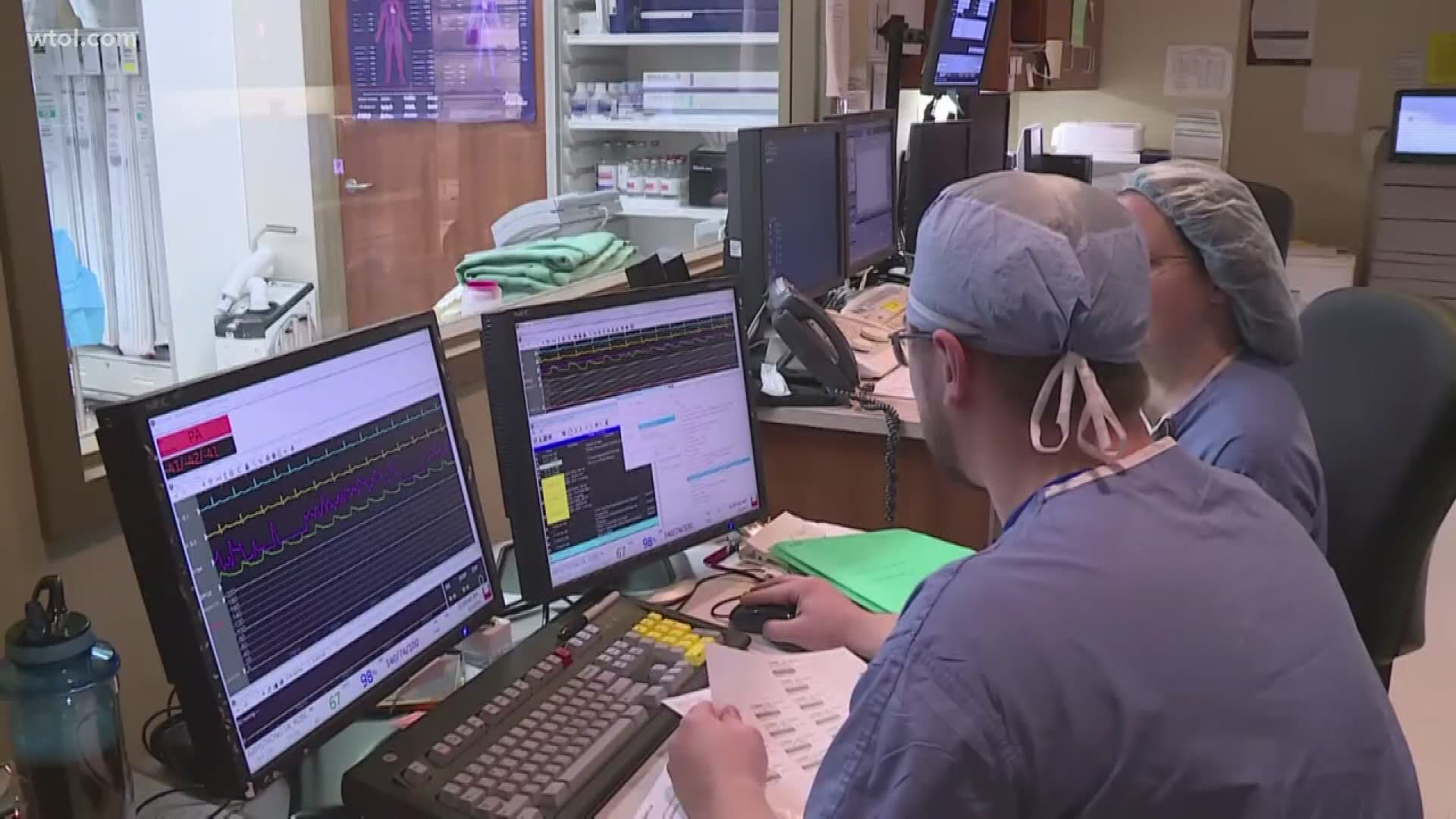TOLEDO, Ohio — We continue to raise awareness about heart disease, the leading cause of death in America, throughout the month of February.
While there are things you can do to prevent heart disease, medical advances are helping heart patients get back to doing the things they enjoy.
"I kind of figured it was life-saving to me," says Bud Bernsdorff, talking about his most-recent heart procedure.
He first learned he had heart disease in 2015 when he felt some tightness in his neck.
Turns out, he needed open heart surgery.
A few years later in late 2019, the discomfort came back so he had a heart catheterization done. "After the procedure, he informed me that I had a blockage but he couldn't do anything about it. It was in a position where he couldn't do a stent or anything in," says Bernsdorff.
Bud had what's called a chronic total occlusion or CTO. It's a 100% blockage of a coronary artery that's been there for at least 3 months.
Fortunately, Bud's cardiologist knew of another doctor who might be able to help: ProMedica Cardiologist Dr. William Colyer. "Throughout the country a number of people have come forward and designed some new techniques and new technologies to allow patients with this condition to be treated with balloons and stents to open up the blockage," says Dr. Colyer.
RELATED: Burning Through Blockages
Bud would be the first ProMedica Toledo Hospital patient to receive the procedure in March 2020, with an audience in the operating room gallery.
"I was coming out of the anesthetic and I was kinda groggy and I hear people clapping. They had said it was successful," recalls Bernsdorff.
Now Dr. Colyer and a team of physicians at Toledo Hospital perform the procedure fairly regularly. He explains, "It won't necessarily help them live longer but it does help them live better. Some of these people are very limited. They can't walk up the bleachers to watch their child or grandchild play a sporting event."
Bud says after a couple of months he was feeling great and back into the swing of things. He says, "I started playing golf and cutting grass and doing those type of things and everything went well."
Dr. Colyer wants patients like Bud to know, if they've been told there's nothing that can be done to help them, to get a second opinion.

